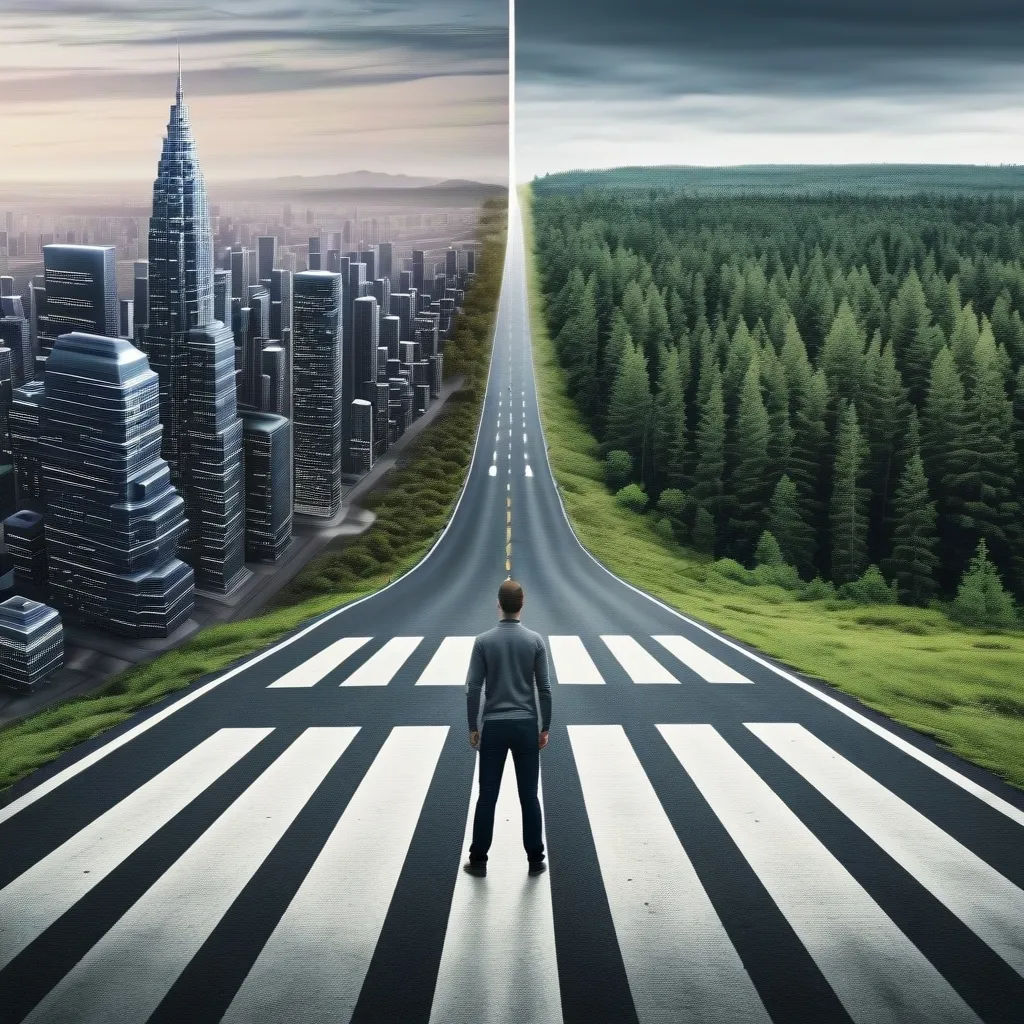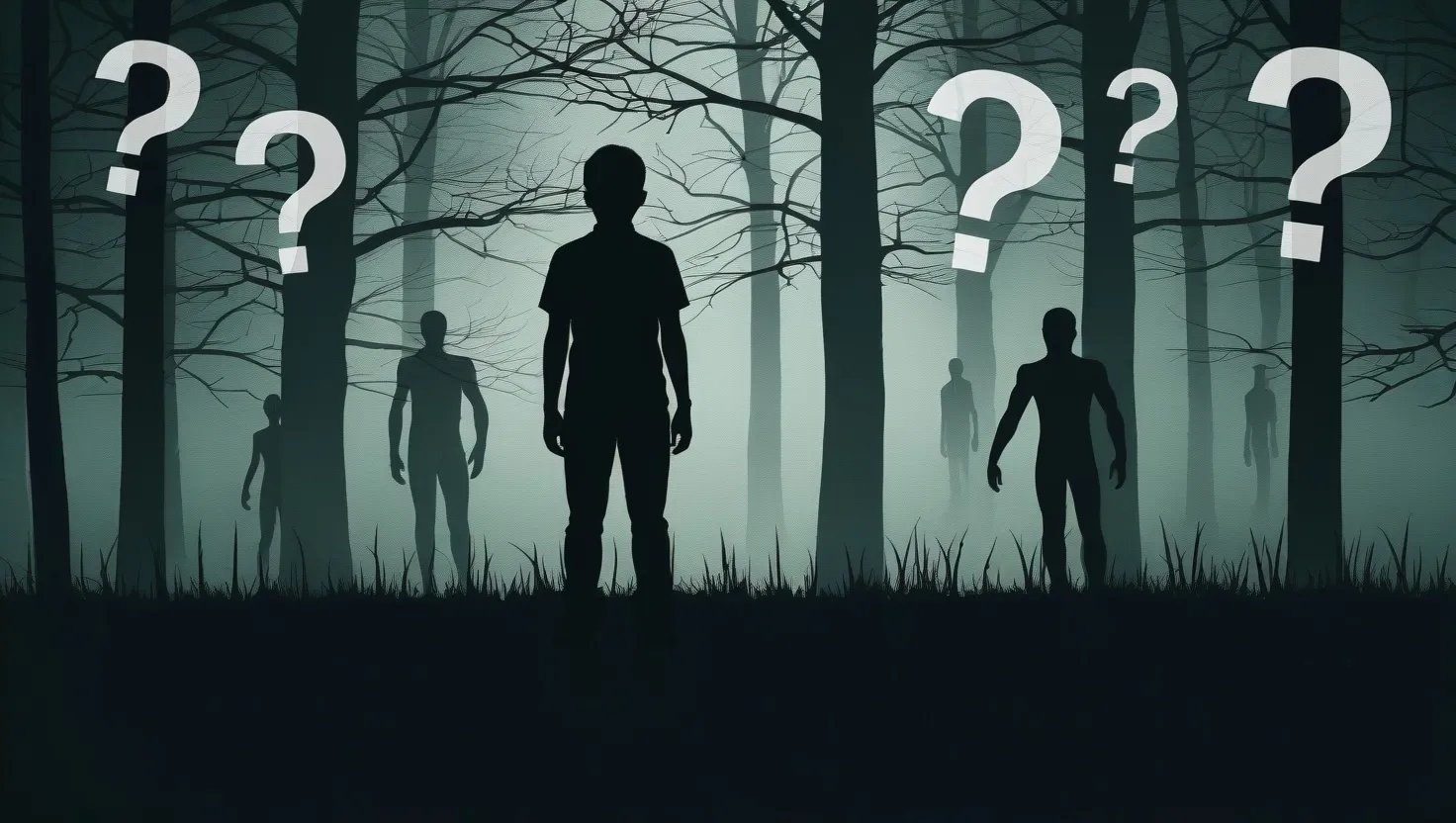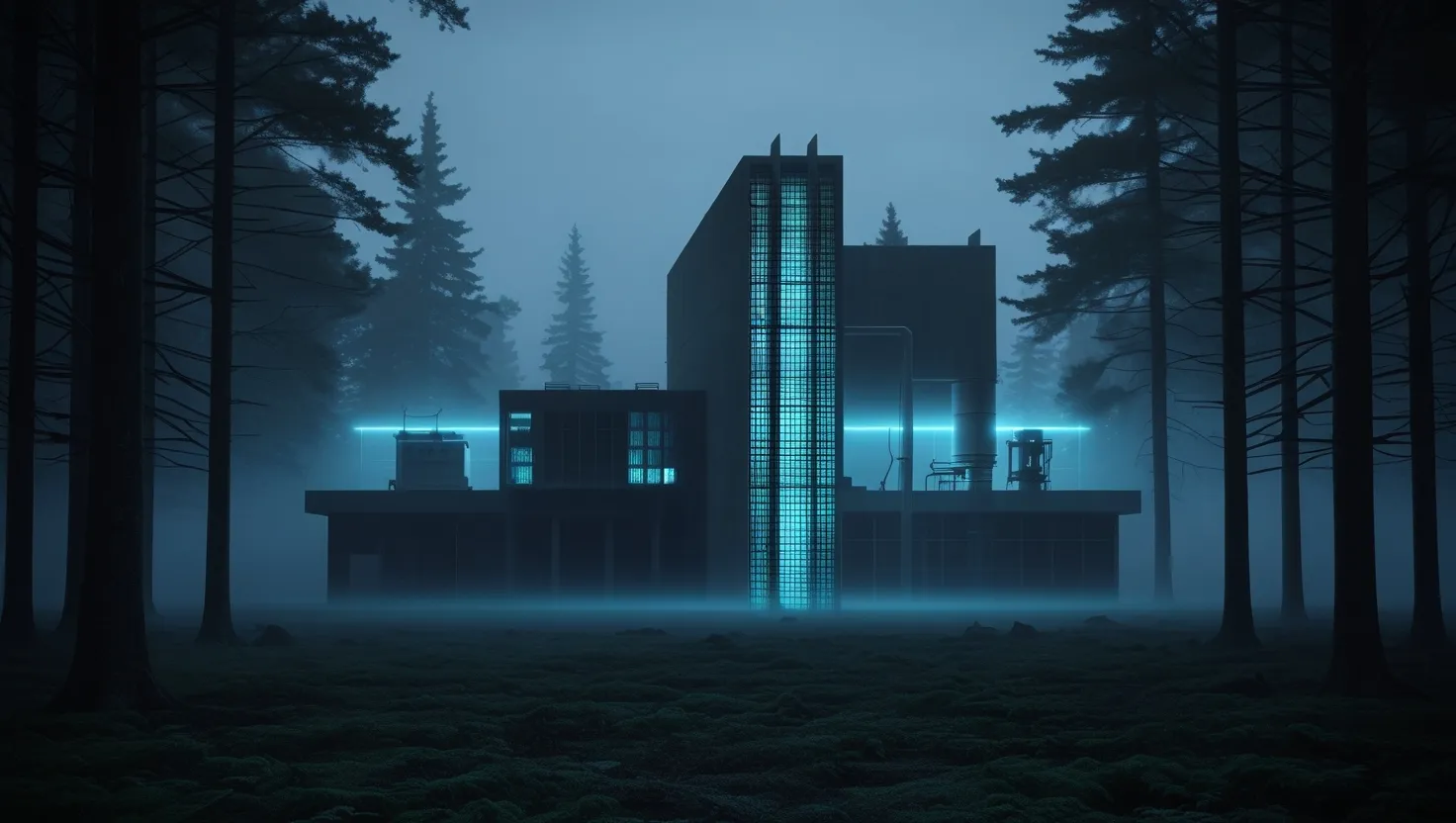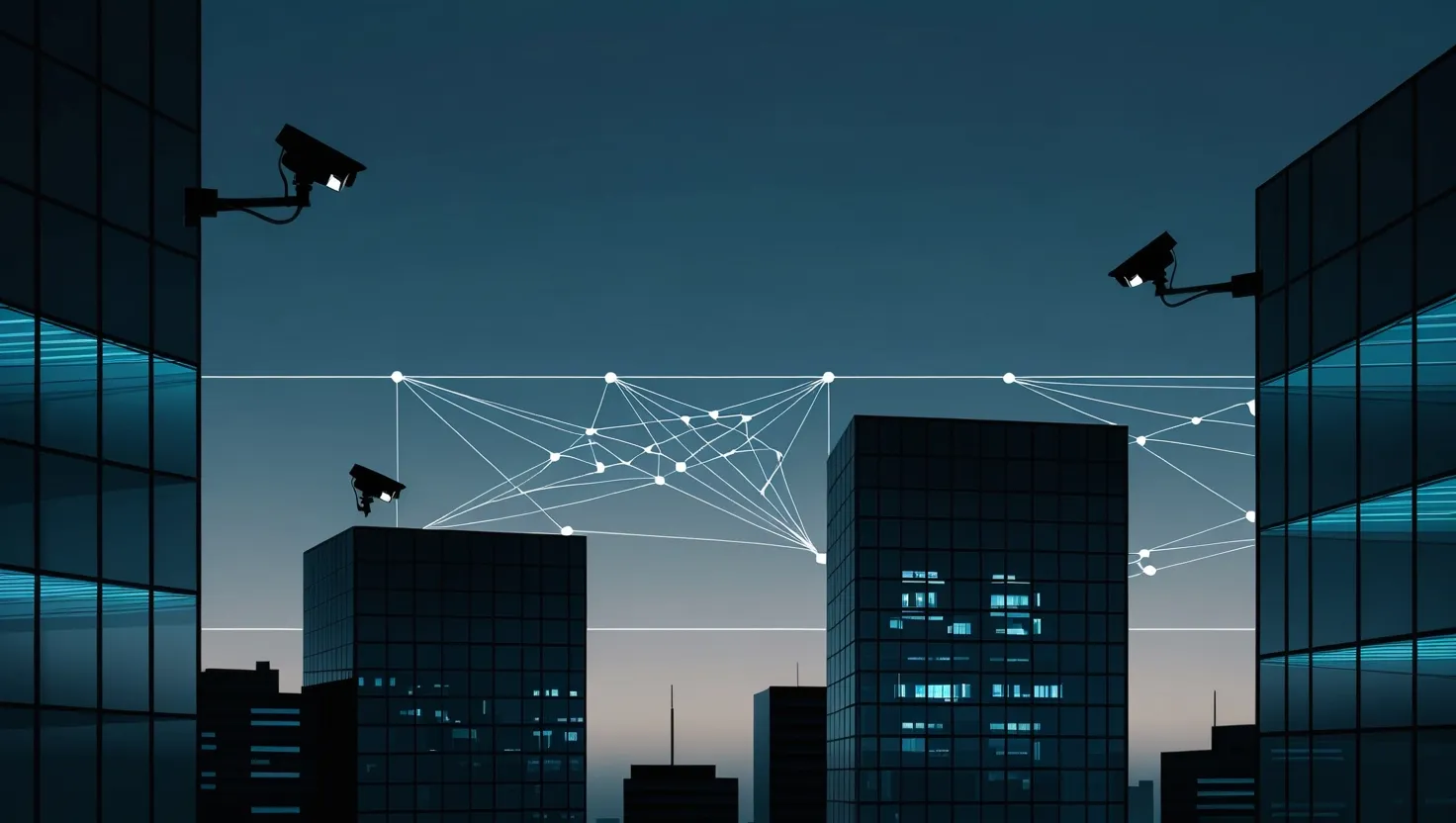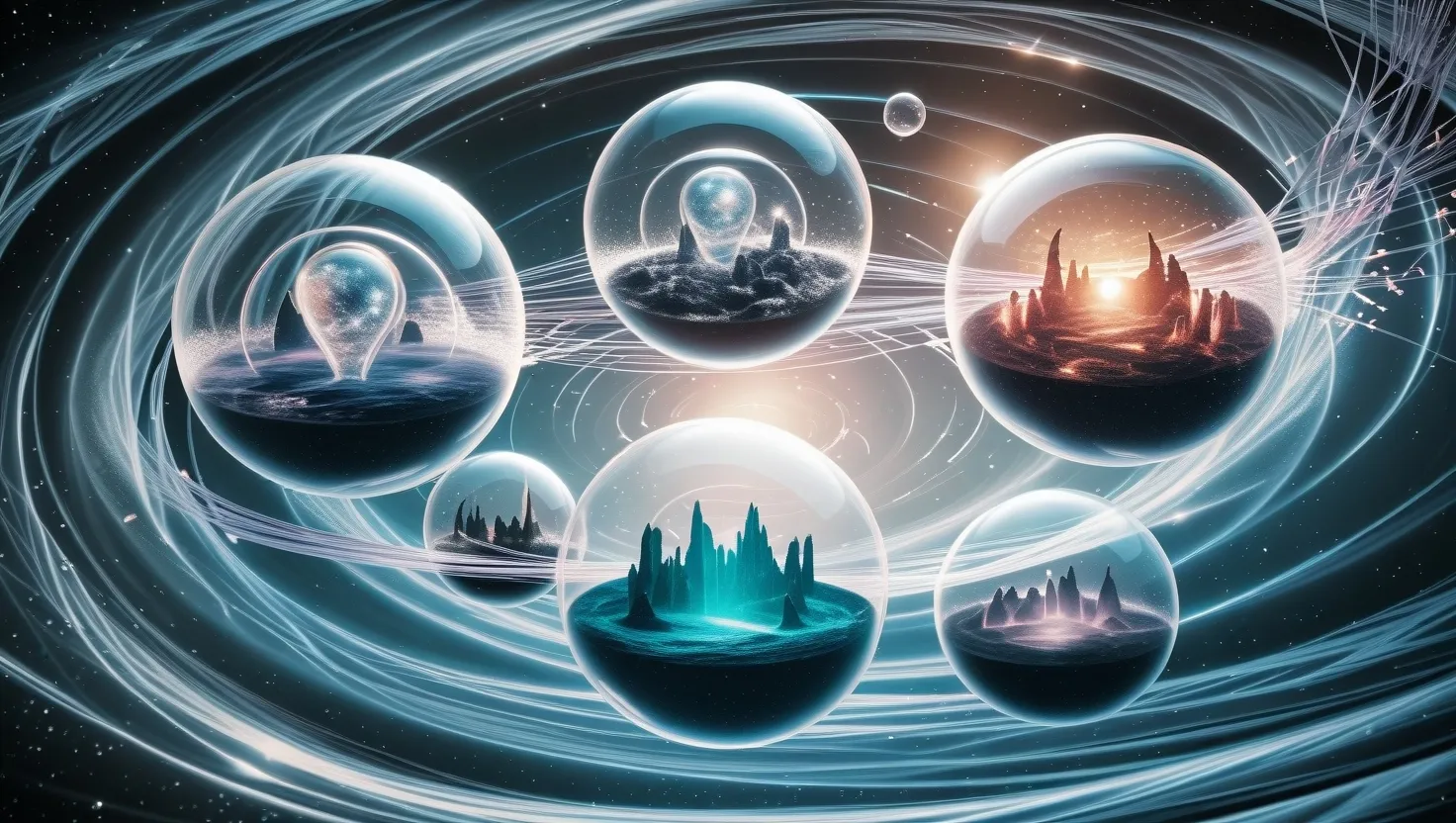The Simulation Hypothesis: Are We Living in a Virtual Reality?
Have you ever had that weird feeling that something’s not quite right with the world around you? Like maybe, just maybe, everything you see and experience isn’t real? Well, you’re not alone. Welcome to the mind-bending world of the simulation hypothesis.
This wild idea suggests that our entire universe, including you, me, and everything we know, might be nothing more than an incredibly advanced computer simulation. Yep, you read that right. We could all be living in a real-life version of The Matrix.
Now, before you start questioning your sanity or looking for glitches in the system, let’s dive into what this theory is all about and why some pretty smart people think it might actually be true.
The whole concept really took off back in 2003 when a philosopher named Nick Bostrom wrote a paper that got everyone talking. He basically laid out three possibilities: either advanced civilizations always go extinct before they can create realistic simulations, they lose interest in making them, or we’re almost certainly living in one right now. Talk about a mind-bender, right?
But here’s where it gets really interesting. Think about how far video games and virtual reality have come in just a few decades. Now imagine what they might be like in a hundred years, or a thousand. It’s not hard to see how they could become indistinguishable from reality. And if that’s possible, who’s to say it hasn’t already happened?
Elon Musk, the guy behind Tesla and SpaceX, is all in on this idea. He thinks that if technology keeps improving at any rate, games will eventually become impossible to tell apart from reality. And if that’s true, he argues, it’s more likely that we’re already in one of these simulations than not.
Now, you might be thinking, “Okay, but what are the odds?” Well, some smart folks have crunched the numbers, and they say it’s pretty much a coin toss. We’re almost as likely to be in a simulation as we are to be in “base reality.” But here’s the kicker: if we ever figure out how to create our own simulations with conscious beings, the odds shift dramatically. Suddenly, it becomes way more likely that we’re already in one.
But if we’re in a simulation, wouldn’t we notice? Maybe not. Some people think we might be seeing signs all around us. Ever heard of the Mandela effect? It’s when a bunch of people remember something differently than how it actually happened. Some say this could be a glitch in the system or maybe an update to the simulation.
And what about déjà vu? You know, that weird feeling that you’ve experienced something before? Well, in the world of simulation theory, that could be a momentary replay or reset of a scenario. Or maybe it’s a bleed-through from another parallel simulation. Trippy, right?
Now, let’s talk about the elephant in the room: the energy problem. Simulating an entire universe would take a ridiculous amount of energy, possibly more than our universe even contains. It’s like trying to fit the ocean in a teacup. But here’s the thing: we’re assuming the rules of physics in the simulator’s universe are the same as ours. What if they’re not?
Some people argue that the whole simulation idea is just too complicated. They say we should stick with Occam’s Razor - the idea that the simplest explanation is usually the best one. And let’s face it, the natural explanation of our reality is a lot more straightforward than nested simulations within simulations.
But let’s get philosophical for a moment. If we are in a simulation, does it change how we should live our lives? Some say it doesn’t matter either way because what we can do within the simulation is what really counts. Others see it as a full-blown existential crisis. I mean, if nothing is real, what’s the point of anything?
There’s also a spiritual angle to all this. Some folks believe that everything is ultimately a form of consciousness, and our reality is just one way that consciousness manifests itself. It’s like we’re all part of some giant, cosmic mind-meld.
Now, if we are in a simulation, why? Are we here for entertainment? Are we part of some grand experiment? Are the simulators trying to understand their own past or explore different scenarios? The possibilities are endless, and honestly, kind of fun to think about.
Looking ahead, if super advanced civilizations do create hyper-realistic simulations, there could be billions of these simulated universes running at the same time. That would make the chances of us being in the one “real” reality incredibly small. We could be just one of countless simulated worlds, each with its own unique experiences and realities.
So, where does all this leave us? Well, the simulation hypothesis is definitely a mind-bender. It challenges everything we think we know about reality and our place in the universe. And while it’s a fascinating idea, it’s still very much up for debate.
But here’s the thing: whether we’re in a simulation or not, does it really change how we should live our lives? The experiences we have, the connections we make, the love we feel - those things are real to us, simulation or not.
In the end, what matters most is how we choose to live within the reality we experience. The fact that we can even ponder these big questions is pretty amazing. It’s what makes being human (or simulated human?) so incredible.
So the next time you’re lying awake at night, wondering if this is all just some advanced alien’s video game, remember that the journey of discovery and the questions we ask are what truly define us. And who knows? Maybe questioning the nature of reality is exactly what the simulators want us to do.
Whether we’re bits of data in a cosmic computer or flesh-and-blood beings in a “real” universe, we’re here now, experiencing this moment. And that, my friends, is pretty darn cool, no matter how you slice it.
